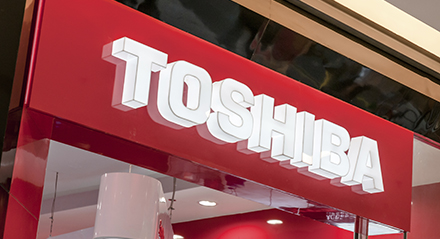Toshiba Scandal: Should Outgoing CFO Have Chaired the Audit Committee?
Conflict of Interest – a conflict between the private interests and the official responsibilities of a person in a position of trust. Merriam-Webster
The Toshiba accounting scandal, which I blogged about recently, raises important questions about the company’s corporate governance practices from 2008 through the third quarter of 2014, the time period in question.
An article in Reuters describing how a $100 million loss was not corrected by Toshiba sets the stage for examining one of these corporate governance practices, preventing conflicts of interest. In addition to providing fascinating details behind this “uncorrected misstatement,” the article reveals that Makoto Kubo was Toshiba’s chief financial officer (CFO) from June 2011 through June 2014 (a fact confirmed in Toshiba’s Investigation Report on page 48). He then became chairman of Toshiba’s audit committee that same month, presumably immediately after he left as CFO.
Corporate Governance Best Practices — Not
Why was Kubo made chair of Toshiba’s audit committee immediately following his tenure as CFO (part of the period during which $1.2 billion in accounting misstatements occurred)? Was there no minimal cooling-off period? It is the audit committee’s responsibility to ensure that the financial information reported by the company to shareowners is complete, accurate, reliable, relevant, and timely. As chair of the audit committee, Kubo played a key role in his oversight responsibilities with Toshiba management and the auditor, Ernst & Young ShinNihon. A point to consider here is that decisions he made as CFO affected multiple reporting periods and would therefore eventually come under his purview as chair of the audit committee. This seems to be the very definition of a conflict of interest.
This revelation provides an excellent opportunity for investors to revisit best practices for independent audit committees. A CFA Institute publication, The Corporate Governance of Listed Companies: A Manual for Investors, provides factors investors should require from audit committees (see page 14). Not the least of which is that all members of the committee should be independent. As noted in the manual, if the independence of the audit committee is compromised, there could be doubts about the integrity of the financial reporting process and about the credibility of the company’s financial statements.
Given the size and nature of Toshiba’s reported financial irregularity, investors have every reason to doubt the integrity of its corporate governance practices. Investors should take this opportunity to identify key corporate governance practices at companies they invest in, including the responsibilities of the audit committee.
If you liked this post, consider subscribing to Market Integrity Insights.
Image Credit: iStockphoto.com/tbradford


This issue of corporate governance among Asian companies is very important, and I am pleased to see the CFA through Matt Waldron remind investors about some of its challenges. What may seem to be compliance on the face of it can fall apart in the detail. As pointed out by the author, it is a clear red flag that an ex CFO subsequently became a member of the audit committee. Another good reason why investor expertise in due diligence is so important, even with big corporations. For many institutions, this is an expertise gap that has yet to be filled
In Asia, there can be an attitude of “keeping things within the corporate family”, where the regional cultural characteristic of collectivism (generally a highly successful business practice) has a side to it that may be inappropriately exploited. This also extends to matters such as related party transactions. A few years back the CFA published an excellent article called “Related-Party Transactions: Cautionary Tales for Investors in Asia” that I encourage all to read:
http://www.cfainstitute.org/learning/products/publications/ccb/Pages/ccb.v2009.n1.1.aspx
What may be considered to be a historically acceptable business practice in one region may clash with modern governance ethics or practices elsewhere in the world to the extent that familiarity across the board, rather than with just one region, is needed to identify potential clashes.